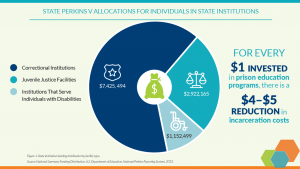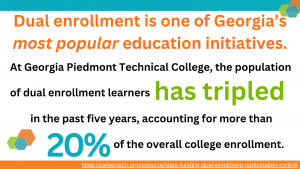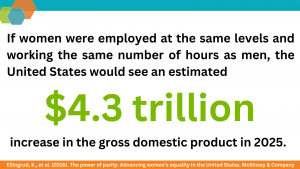Advance CTE is excited to introduce a collection of briefs that feature the original research conducted by select Fellows from our inaugural cohort of The Postsecondary State Career Technical Education (CTE) Leaders Fellowship – Sponsored by ECMC Foundation (Fellowship). These briefs cover different topics within the CTE landscape and alignment with Advance CTE’s CTE Without Limits’ principles for advancing equitable, high-quality CTE programs for every learner.
The Fellowship strives to address the growing shortage of state postsecondary CTE leadership by closing racial representation gaps and removing equity barriers to leadership advancement. Through individualized supports, intentional networks and a real-world fellowship project, Advance CTE-ECMCF Fellows gain the skills and network to pursue leadership positions and advance high-quality, equitable state postsecondary CTE systems. The Real-World Project is a capstone of the Fellowship. By highlighting selected projects and citing Fellows’ research as contributions to the national CTE landscape, we aspire to elevate a new generation of CTE leaders.
The first brief, Career and Technical Education and the Justice System: State Strategies to Improve Outcomes for Justice-Involved Learners in CTE Programs, features research from Fellows alumni Richard Crosby and Janelle Washington.
High-quality education opportunities for justice-involved learners have demonstrated a strong economic return; a study produced by the RAND Corporation found that, for every $1 invested in prison education programs, there is a $4-5 reduction in incarceration costs during the first three years post-release of a prisoner. Despite these benefits, only seven states are currently opting to allocate the maximum allowable amount of state leadership set-aside funds to improving outcomes for this population of learners. This brief offers actionable recommendations for state leaders to address systemic barriers through changes to funding, administrative and program quality policies to have a long-term and lasting reduction impact on recidivism.

The second brief, a Policy Review of the Impact of House Bill 444 on Career and Technical Agricultural Education Dual Enrollment at Technical College System of Georgia (TCSG) Institutions, highlights the research of Fellowship alumni Dr. Kristin Corkhill.
Dual enrollment is a popular education initiative that has contributed to increased postsecondary enrollment across the Technical College System of Georgia. These programs represent early opportunities for learners to gain industry-aligned skills and develop confidence and awareness of how to be successful in postsecondary programs and generate a highly skilled workforce pipeline to continue to grow the state’s economy. This brief offers recommendations for state leaders on how to continue to support improved enrollment trends.

The third brief, Non-Traditional Learner Participation in Postsecondary Career and Technical Education Programs features research by Fellowship alumni Jean Claude Mbomeda.
The non-traditional gender occupational divide weakens state economies by decreasing economic productivity and reducing diversity in decision-making. By creating gender parity in which “women participate in the labor force at the same rate as men, work the same number of hours as men, and are employed at the same levels as men across sectors,” the United States would see an estimated $4.3 trillion increase in the gross domestic product in 2025.1 Check out this brief to learn ways that state leaders can strengthen policies to ensure equitable access and outcomes for every learner and better meet the needs of the state’s economy and labor market.

These briefs are the first part of the larger Building a Diverse Leadership Pipeline series, set to be released later this year, that aims to increase leadership stability and achieve more demographically representative state CTE leadership, by providing resources, tools and examples to help state leaders establish a talent pipeline and provide training, mentorship and opportunities for aspiring CTE leaders.
Amy Hodge, Membership & Policy Associate
- Ellingrud, K., et al. (2016). The power of parity: Advancing women’s equality in the United States. McKinsey & Company. https://www.mckinsey.com/featured-insights/employment-and-growth/the-power-of-parity-advancing-womens-equality-in-the-united-states#:%7E:text=In%20a%20new%20report%2C%20The,the%20economic%20potential%20of%20women
Tags: CTE Without Limits, Dual and Concurrent Enrollment, ECMC Foundation, ECMCF Fellows, gender equity, Georgia, Justice-involved learners, PSCTE Fellowship, Real-World Project

